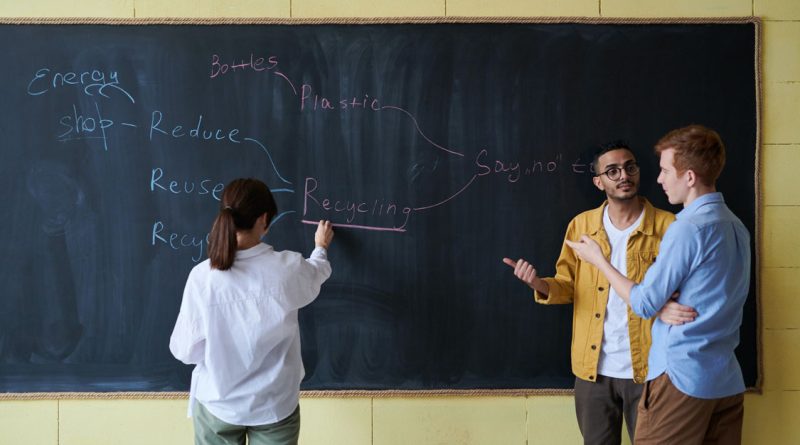Top 10 Lessons From COVID-19 Applied to Climate Change
By Fred Larsen – Special to SUNonline/Orillia
Part 1
“Never let a good crisis go to waste.” While it is not entirely clear Winston Churchill was the originator of the phrase, it sounds like the man often credited as the key figure in England and Allies winning WWII, faced more than a few crises during those years.
The world in 2020 is facing the crisis of COVID-19, a pandemic which has brought the world economy to a standstill. As we in Orillia, in Canada, and across the world stay home to reduce the pace of the pandemic and the deaths it is causing, it is appropriate during this pause in our normal lives, to think about the lessons the pandemic is providing for us.
At Sustainable Orillia our goal is to encourage our community – and the larger society – to move toward sustainable living and, in doing so, to confront the climate crisis threatening our future. Accordingly, we offer the following transferable lessons with the hope what we learn from this pandemic will help us reduce and/or mitigate the even greater threats coming our way from the climate crisis. As you’re reading them, please ask yourself, “How can we use this crisis to make things better?”
Here they are – Sustainable Orillia’s Top 10 Lessons.
LESSON 1: CRISES MAKE US APPRECIATE WHAT IS REALLY IMPORTANT IN OUR LIVES
COVID-19: The need to stay home and work at home necessitates many changes to family lifestyle. While it is unrealistic to expect to work full-time from home and care for children, many families are finding silver lining moments in eating more meals together, playing games inside or in the backyard, or going for walks together. Working dads and moms are discovering how valuable teachers and day care providers are, and what a daily commute really costs them in terms of their personal and family life.
CLIMATE CRISIS: Time spent with family and friends can be a greater cause of happiness than having things. Beyond food and shelter we don’t need much to be content with our lives. Have we been working to live? or living to work? Are we more than just consumers? Do we need as much as we thought we did pre-pandemic? Can we reduce our footprints on this planet? The pandemic raises serious challenges to the way we live, but some new habits can become lasting if we work at them – as we must if we’re serious about meeting the climate crisis and ending our overuse of the planet’s resources.
LESSON 2: IN EMERGENCIES, GOVERNMENTS MUST ACT TO PROTECT PEOPLE.
COVID-19: In Canada and countries around the world citizens recognized changes their governments are calling for are necessary to preserve lives – and they are, by and large, responding to the directions being given.
CLIMATE CHANGE: For two decades or more governments across the globe have been warned they need to take action to protect and preserve the lives of the people on this planet. All of us need to recognize the actions being urged by the scientific community – and so far largely disregarded by our governments – are also about saving lives. Climate action is needed now.
LESSON 3: OUR COUNTRY CAN TAKE RADICAL ACTION WHEN WE WANT TO, WHEN THE NEED FOR CHANGE IS EVIDENT. LARGE-SCALE RESPONSE TO A GLOBAL CRISIS IS POSSIBLE.
COVID-19: Governments have made decisions to shut down much of the economy, close our entertainment venues and ask most people to stay isolated in their homes. In addition, governments have issued cheques to people who have lost jobs, raised the salaries of essential workers and authorized expenditures which would have been controversial just months ago. Most adults have never seen this kind of large-scale response to a situation – at least not since 1945 and the end of WWII.
CLIMATE CRISIS: Government actions to address the climate crisis would be, in many cases, far less disruptive to our economy and our society than COVID-19 actions, yet most governments have been very tentative in actions to date. Actions generally considered have been inadequate to meet the challenges of the climate crisis. Surveys show the majority of Canadians accept climate effects will harm future generations should encourage bolder action. Our Canadian governments now know people will accept radical action if it is warranted.
LESSON 4: IN A CRISIS, DELAYING THE RESPONSE WORSENS THE EFFECT – INCLUDING THE DEATH RATE.
COVID-19: When one compares the reactions of various countries to the pandemic, it is clear an early, aggressive response reduces the number of infections and the number of deaths, preventing an overwhelming of the resources used to combat the disease. A late response, such as seen in Italy and the U.S. – increased deaths due to the pandemic.
CLIMATE CHANGE: It is equally clear, had nations of the world two decades ago (or even earlier) begun taking more seriously warnings about the need to reduce our use of fossil fuels, we would, in 2020, be seeing success in the reduction of greenhouse gasses (GHGs). We would be nearer the goals we must meet to reduce the harm the world is experiencing from the effect of uncontrolled and unmitigated climate change, which is a reduced ability of the planet to provide what life needs. Given this delay, serious governmental responses must be accelerated now.
LESSON 5: LISTEN TO THE SCIENTIFIC COMMUNITY; IGNORANCE OF SCIENCE CAN BE FATAL

COVID-19: Countries which met the challenge of the pandemic most effectively put their most knowledgeable scientists in charge of the response. Countries which responded most quickly with actions recommended by scientists have been the most successful in reducing the spread of the virus and resulting deaths.Research funding has been released to support scientific research and innovation, creating an unprecedented global collaboration among researchers and scientists to develop medical treatments and an eventual vaccine for this virus.
CLIMATE CRISIS: The vast majority of scientists have been sounding the alarm for at least two decades. They have also made it clear what actions are required to reduce the disruption, damage and death coming our way. It is time to pay heed to the message and respond with action – just as we have done for COVID-19.
(Photos by Pexels)




